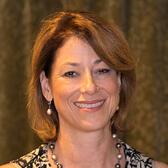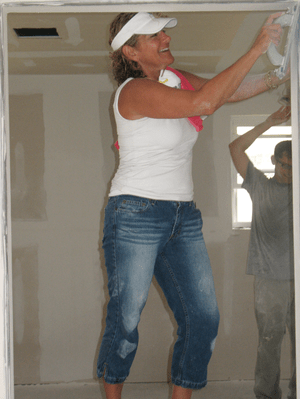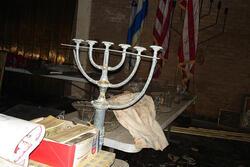New Orleans “Normal”: An Interview With Julie Wise Oreck
In Katrina’s Jewish Voices, JWA’s collection of video interviews with New Orleans women in the aftermath of Hurricane Katrina, Julie Wise Oreck discussed the extraordinary collaboration of the Jewish community to rebuild the city. In 10 years, she predicted then, “we’ll look back and say we could have done it better. There are things we should be doing … but we don’t know what they are now.” We followed up with Julie this week to see how she would respond to her prediction, 10 years later.
In hindsight, do you agree that there were things the Jewish community should have done differently post-Katrina?
What we did at the time was as good as we could have done. We were doing everything we could, and those of us who stayed got together and got to work. We pulled our leadership together, and we shared resources. So, no: I can't pinpoint anything we could have done differently. As I saw it, the Jewish community came together as well as or better than any community in the city. We all bonded, helped one another, and gained strength from one another, and we knew that what we were doing was the right thing to do. We were truly driven by tikkun olam and tzedakah.
To me, the New Orleans Jewish community is not just a microcosm of the general community; to me, it is a major organ of the entire city. Since Katrina, we have welcomed so many newcomers into our community. They have added diversity and strength. They are exciting and new and happy to join the ranks of those of us who call New Orleans home.
You mention tikkun olam—repairing the world. You had so much literal repairing to do. How did you go about it?
We are constantly hearing ourselves and the city described with the word "resiliency." I don't think everyone was resilient, but they were certainly determined. The people who came back [after the evacuation] weren't going to let a little adversity get in their way of coming together and rebuilding their community.
We knew that it was a marathon not a sprint, and nothing was going to be done overnight. But whether it was a year, two years after, five years later, or now 10, we knew we were part of that rebuilding. Some of us helped clean out houses in the ninth ward, build new houses, or renovate ruined houses, working with many organizations that did so many great things.
Has life returned even somewhat to normal?
When people have asked me over the last few years if New Orleans is back, I always say immediately: yes. We will never be exactly what we were before, but the rebuilding has been extraordinary. All you have to do is look at the coverage over the past few weeks showing where we were and where we are now to see that so much of the beauty of this great city has been restored. Thanks to organizations like St. Bernard Project and Habitat for Humanity, as well as countless others, much of the city is back to normal—whatever normal means in New Orleans. Those of us who live here know that our definition of normal is not the same as most other places in this country. But we are normal New Orleanians: we're strong and we love our city.
What is the mindset in New Orleans as the anniversary approaches?
Watching all of this summer’s replaying of the devastation and the scenes of the city underwater from 10 years ago is overwhelming at times. The post-traumatic stress that many of us have felt over the last 10 years has been intensified in the last couple of weeks with the scenes of the devastation and reliving that horrific time in our lives. I think the anniversary has set us back a bit emotionally.
We lost a lot. Some of it was good to lose, and some of it was sad to lose—including members of our Jewish community. But I truly think that what we gained made up for what we lost. Those of us who stayed are very happy that we did. We're proud of what we've accomplished. We're proud of our city, we're proud of our leadership, we're proud of the Jewish community. There is a sense of pride and love for the city that’s much stronger than it ever was.







